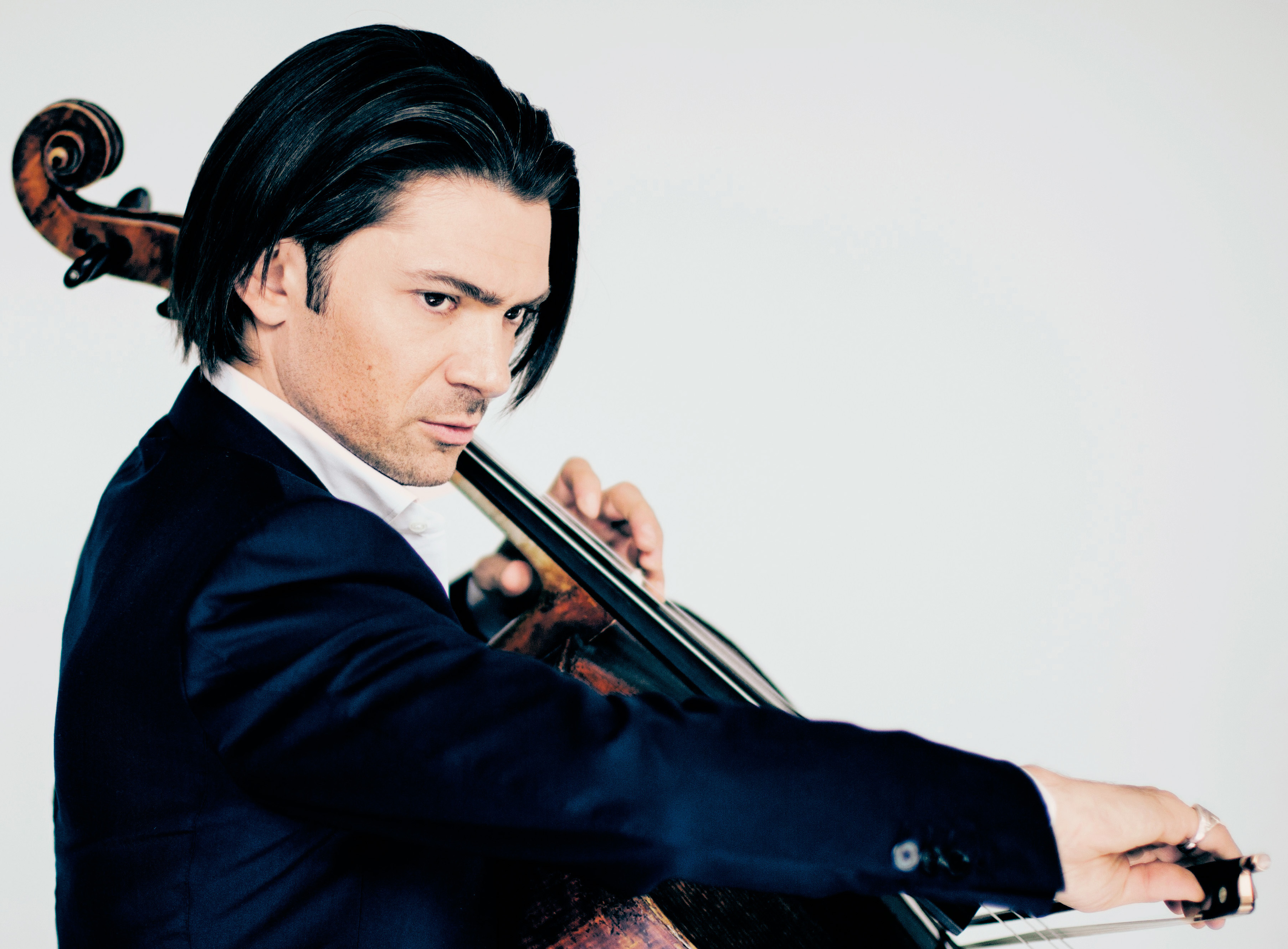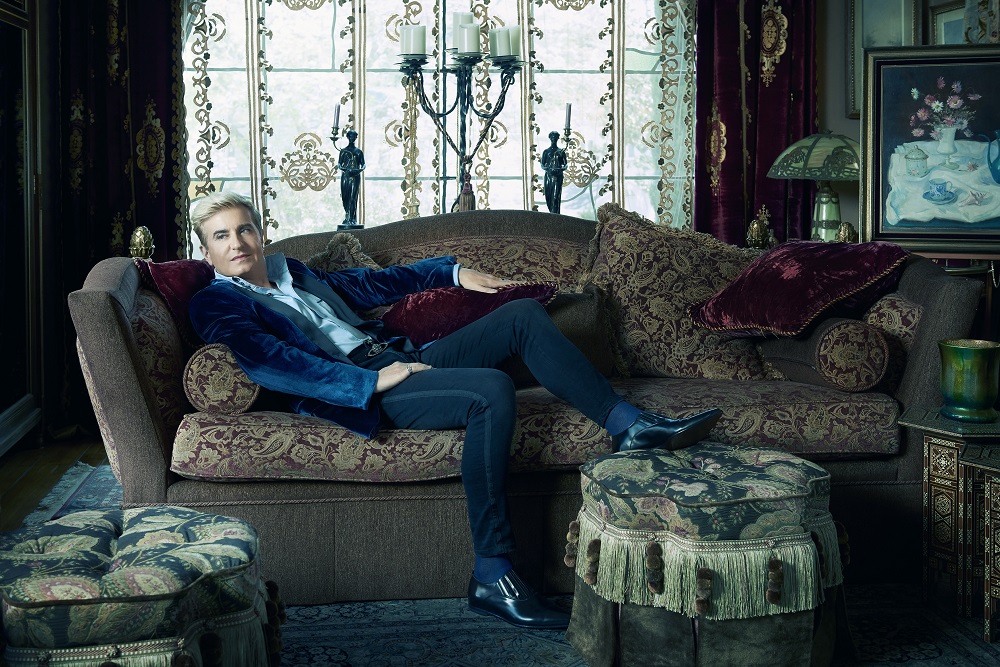Thibaudet/Batiashvili/Capuçon Trio, Barbican review – a supergroup to savour | reviews, news & interviews
Thibaudet/Batiashvili/Capuçon Trio, Barbican review – a supergroup to savour
Thibaudet/Batiashvili/Capuçon Trio, Barbican review – a supergroup to savour
Three solo stars come together in ego-free harmony
Even in a large hall, very good things can come in small packages. In advance, partisans of the Wigmore Hall or some other dedicated chamber space might have feared that the Barbican’s main auditorium would turn out to be too chilly a barn for the intimate music-making promised by this supergroup. All-star trios or quartets, made up of soloists more accustomed to the undivided limelight, can frequently add up to less than the sum of their parts.
Prior worries, however, proved misplaced. Jean-Yves Thibaudet’s piano, Lisa Batiashvili’s violin and Gautier Capuçon’s cello stitched their individual strands of sound into a sumptuous fabric. The suboptimal conditions of the Barbican did nothing to freeze the warmth of their interaction, or blur the lucid refinement of their playing across a spread of diverse styles.
This was an imaginative, and unexpected, programme. Dating from 1923, Shostakovich’s first trio might rank as a spirited slice of juvenilia were it not for the hints of grief and abandonment that darken its palette and even look forward to the tragic and elegiac colouring of later works. In its series of short, barely integrated sketches, we already heard the mutually attentive give-and-take between Batiashvili and Capuçon (pictured below by Felix Broede), turning on a coin between frolic and anguish, that enriched the entire evening. If Thibaudet had to take something of a back seat here, the intriguing bell chimes of his Debussy-esque accompaniment hinted at pleasures to come. Fragments of a darkly jaunty danse macabre barge into the trio’s stretches of lyrical serenity, like skeletons prancing on a lawn. Indeed, this periodically feels more like a mosaic of smart ideas than a unified whole. This account made the most of its youthful longing and coiled, nervous tension.  Ravel’s A minor trio, written as the Great War broke out in summer 1914, also harbours hints of pastoral peace smashed into shards by some sudden crisis. The gorgeous opening theme (Ravel thought of it as a “Basque” tune) breaks down into a sort of artfully managed maelstrom of sound. Here the exceptional quality of Batiashvili and Capuçon’s alert to-and-fro raised their playing to the heights. Capuçon’s rich, mellow lyricism mocked the idea – as he did in every work here – that the cello has to play a mere supporting role in the trio repertoire. After the playful menace of the hyper-active second movement (Ravel called it a “pantoum”, apparently after a Malayan verse-form), the honeyed growl of Capuçon’s cello inaugurates a yearning passacaglia. It allowed cello and violin to braid their wistful lines into the most sophisticated kind of folksiness.
Ravel’s A minor trio, written as the Great War broke out in summer 1914, also harbours hints of pastoral peace smashed into shards by some sudden crisis. The gorgeous opening theme (Ravel thought of it as a “Basque” tune) breaks down into a sort of artfully managed maelstrom of sound. Here the exceptional quality of Batiashvili and Capuçon’s alert to-and-fro raised their playing to the heights. Capuçon’s rich, mellow lyricism mocked the idea – as he did in every work here – that the cello has to play a mere supporting role in the trio repertoire. After the playful menace of the hyper-active second movement (Ravel called it a “pantoum”, apparently after a Malayan verse-form), the honeyed growl of Capuçon’s cello inaugurates a yearning passacaglia. It allowed cello and violin to braid their wistful lines into the most sophisticated kind of folksiness.
For both, their passages of frankly romantic vibrato and unabashed sweetness never made the texture cloy. A bedrock of sheer elegance – I would call it French, were not Batiashvili Georgian-born and German-based – always remained. Then, amid the all forte excitement of the finale (“animé”, advises Ravel), Thibaudet’s ominous, agitated chords gesture anxiously towards the gathering global storm.  If the first two works often offered a perfect showcase for the poised and sensitive dialogue between Batiashvili and Capuçon, Mendelssohn’s second trio (from 1845) closed the concert with an equal, three-way conversation. At last, Thibaudet (pictured above) really had a consistent chance to shine. He took up the string themes of the opening allegro and embellished them with swaggering, exploratory delight. Then, in the song-like andante, his piano rippled and darted around the yearning strings – with Capuçon’s cello majestically lush in this section. As for the third-movement scherzo, suddenly we’re back – close to the end of Mendelssohn’s too-brief life – in the effervescent teenage fairyland of A Midsummer Night’s Dream. Thibaudet turned somersaults around the pitter-patter pixie dance and even weighed in with a snatch of Bottom-grade peasant stomp. The bouncing and bounding allegro of the finale also finds room for a sharp shift of mood, as a noble chorale theme breaks in to perform another of Mendelssohn's dazzling scene-changes.
If the first two works often offered a perfect showcase for the poised and sensitive dialogue between Batiashvili and Capuçon, Mendelssohn’s second trio (from 1845) closed the concert with an equal, three-way conversation. At last, Thibaudet (pictured above) really had a consistent chance to shine. He took up the string themes of the opening allegro and embellished them with swaggering, exploratory delight. Then, in the song-like andante, his piano rippled and darted around the yearning strings – with Capuçon’s cello majestically lush in this section. As for the third-movement scherzo, suddenly we’re back – close to the end of Mendelssohn’s too-brief life – in the effervescent teenage fairyland of A Midsummer Night’s Dream. Thibaudet turned somersaults around the pitter-patter pixie dance and even weighed in with a snatch of Bottom-grade peasant stomp. The bouncing and bounding allegro of the finale also finds room for a sharp shift of mood, as a noble chorale theme breaks in to perform another of Mendelssohn's dazzling scene-changes.
The respectful attentiveness of the three players at every twist and lurch of this myriad-minded music was a joy to behold, and to hear. Yes, supergroups can sometimes underperform. But not tonight. I even remembered that the firmest rebuttal to my preference for trios free of solo megastars came more than a century ago, when Thibaudet’s near-namesake Jacques Thibaud teamed up with Alfred Cortot and Pablo Casals. Last night, it felt as if the three amigos of the TBC Trio might approach that sort of summit: the contrasting encores of a Tchaikowsky song and a bravura allegro from the mature Shostakovich’s second trio set the seal on their commanding versatility. TBC: to be continued? We should certainly hope so.
rating
Explore topics
Share this article
The future of Arts Journalism
You can stop theartsdesk.com closing!
We urgently need financing to survive. Our fundraising drive has thus far raised £49,000 but we need to reach £100,000 or we will be forced to close. Please contribute here: https://gofund.me/c3f6033d
And if you can forward this information to anyone who might assist, we’d be grateful.

Subscribe to theartsdesk.com
Thank you for continuing to read our work on theartsdesk.com. For unlimited access to every article in its entirety, including our archive of more than 15,000 pieces, we're asking for £5 per month or £40 per year. We feel it's a very good deal, and hope you do too.
To take a subscription now simply click here.
And if you're looking for that extra gift for a friend or family member, why not treat them to a theartsdesk.com gift subscription?
more Classical music
 Bizet in 150th anniversary year: rich and rare French offerings from Palazzetto Bru Zane
Specialists in French romantic music unveil a treasure trove both live and on disc
Bizet in 150th anniversary year: rich and rare French offerings from Palazzetto Bru Zane
Specialists in French romantic music unveil a treasure trove both live and on disc
 Scottish Chamber Orchestra, Ibragimova, Queen’s Hall, Edinburgh review - rarities, novelties and drumrolls
A pity the SCO didn't pick a better showcase for a shining guest artist
Scottish Chamber Orchestra, Ibragimova, Queen’s Hall, Edinburgh review - rarities, novelties and drumrolls
A pity the SCO didn't pick a better showcase for a shining guest artist
 Kilsby, Parkes, Sinfonia of London, Wilson, Barbican review - string things zing and sing in expert hands
British masterpieces for strings plus other-worldly tenor and horn - and a muscular rarity
Kilsby, Parkes, Sinfonia of London, Wilson, Barbican review - string things zing and sing in expert hands
British masterpieces for strings plus other-worldly tenor and horn - and a muscular rarity
 From Historical to Hip-Hop, Classically Black Music Festival, Kings Place review - a cluster of impressive stars for the future
From quasi-Mozartian elegance to the gritty humour of a kitchen inspection
From Historical to Hip-Hop, Classically Black Music Festival, Kings Place review - a cluster of impressive stars for the future
From quasi-Mozartian elegance to the gritty humour of a kitchen inspection
 Shibe, LSO, Adès, Barbican review - gaudy and glorious new music alongside serene Sibelius
Adès’s passion makes persuasive case for the music he loves, both new and old
Shibe, LSO, Adès, Barbican review - gaudy and glorious new music alongside serene Sibelius
Adès’s passion makes persuasive case for the music he loves, both new and old
 Anja Mittermüller, Richard Fu, Wigmore Hall review - a glorious hall debut
The Austrian mezzo shines - at the age of 22
Anja Mittermüller, Richard Fu, Wigmore Hall review - a glorious hall debut
The Austrian mezzo shines - at the age of 22
 First Person: clarinettist Oliver Pashley on the new horizons of The Hermes Experiment's latest album
Compositions by members of this unusual quartet feature for the first time
First Person: clarinettist Oliver Pashley on the new horizons of The Hermes Experiment's latest album
Compositions by members of this unusual quartet feature for the first time
 Gesualdo Passione, Les Arts Florissants, Amala Dior Company, Barbican review - inspired collaboration excavates the music's humanity
At times it was like watching an anarchic religious procession
Gesualdo Passione, Les Arts Florissants, Amala Dior Company, Barbican review - inspired collaboration excavates the music's humanity
At times it was like watching an anarchic religious procession
 Classical CDs: Camels, concrete and cabaret
An influential American composer's 90th birthday box, plus British piano concertos and a father-and-son duo
Classical CDs: Camels, concrete and cabaret
An influential American composer's 90th birthday box, plus British piano concertos and a father-and-son duo
 Cockerham, Manchester Camerata, Sheen, Martin Harris Centre, Manchester review - re-enacting the dawn of modernism
Two UK premieres added to three miniatures from a seminal event of January 1914
Cockerham, Manchester Camerata, Sheen, Martin Harris Centre, Manchester review - re-enacting the dawn of modernism
Two UK premieres added to three miniatures from a seminal event of January 1914
 Kempf, Brno Philharmonic, Davies, Bridgewater Hall, Manchester review - European tradition meets American jazz
Bouncing Czechs enjoy their Gershwin and Brubeck alongside Janáček and Dvořák
Kempf, Brno Philharmonic, Davies, Bridgewater Hall, Manchester review - European tradition meets American jazz
Bouncing Czechs enjoy their Gershwin and Brubeck alongside Janáček and Dvořák
 Solomon, OAE, Butt, QEH review - daft Biblical whitewashing with great choruses
Even a top soprano and mezzo can’t make this Handel paean wholly convincing
Solomon, OAE, Butt, QEH review - daft Biblical whitewashing with great choruses
Even a top soprano and mezzo can’t make this Handel paean wholly convincing

Add comment